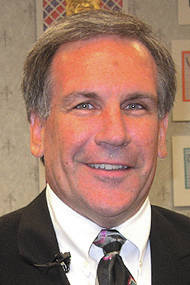
In my last column, I criticized the nine-recommendation recently released by the Ohio Speaker’s Task Force on Education and Poverty, which was created to develop strategies that address the achievement gap that exists between poor children and their wealthier counterparts. The gist of my criticism was that nowhere on a list that was supposed to focus on a child’s development was there even a hint of a suggestion that parents play a role in that development. How is that possible?
To try to gain some insight into the task force’s thinking, I contacted some of its members, which included politicians and those with educational backgrounds, to see if they could explain their oversight. To date, I have received three responses, and the answers I received revealed why we have made no headway in solving this achievement gap problem in the decades that we have supposedly been attacking it.
The first response suggested that the task force member couldn’t recall exactly how the nine recommendations were arrived at, in large part because the first meeting occurred well over a year ago, with the meetings concluding approximately a year ago. This task force member had obviously not been involved in the final development of the recommendations, so he may have been as surprised by them as I was.
I could tell by his response to me and by some of the comments attributed to him in the 500-page report that can be found online, that he is well aware of the futility of engaging in discussions about helping children achieve success while ignoring the role parents in the process. But, his concerns obviously didn’t make the cut.
The second responder included a remark that I have heard many times before, that being that, since we in education can’t control what parents do to help their children succeed, it is our job to focus only on things we can control. The problem with this approach is that it limits us to creating new programs or attempting to improve old programs, most of which are costly, and none of which have solved the problem yet. In other words, it’s the same old same old.
The first time I was offered this explanation was several years ago when I challenged Sen. Peggy Lehner on her silly “Third Grade Reading Guarantee” law, which was written, again, as if parents play no role in their child’s literacy development. When I suggested to her that her law was doomed to fail in its effort to erase childhood illiteracy due to this omission, her response was, “Well we can’t tell parents what to do. What do you want us to do, just throw up our hands and quit?”
I never suggested we should quit. What I DID suggest is perhaps writing legislation based on what we know to be true about child development. Just once.
While it may be true that we can’t tell parents what to do, (and my next comment is directed at educators), we CAN control the narrative about how children become successful, because this is something we know. We should be driving that narrative train. But, we have not. Instead, we have allowed those with no expertise in childhood development (primarily politicians and policy geeks) to dictate the rules governing childhood development and to base their rules on their false narrative. This has resulted in the total failure of education policies from the state level.
I understand why many educational leaders have adopted this path of least resistance. There is a price for speaking out against the political establishment, including having your professionalism lampooned, your intelligence questioned, and your dedication to children condemned. Believe me, I have experienced that firsthand. But, our reluctance to speak up has doomed more children to failure and resulted in impossible expectations being placed on educators. It is time that we stop it.
The third response I received took me to task a tad, suggesting that before I assume the report had omitted important discussions, I should read the 500 pages it entails and not just read the nine recommendations.
First of all, I am not going to pretend that I will read all 500+ pages of the report. I did, however, skim through it hoping that I would stumble across some new pearls of wisdom that I had not read a thousand times before in previous reports. But, alas, I saw nothing of the kind.
I did notice, however, that every now and then someone on the committee had the audacity to suggest that parents play a role in their child’s growth. But, those kinds of comments remained buried in the report, and they darned sure didn’t make the cut to the final nine recommendations on which future policies will be written.
Finally, I was told that the task force did not want to appear to lecture parents who live in poverty about how to parent. To be clear, I’m not suggesting that we lecture anyone. What I AM suggesting is that we let parents, ALL PARENTS, know that they are the most important educators in their child’s life and that what they do (or don’t do) has a lasting impact on their child’s life. I am suggesting that we stop this false conversation that parents don’t matter.
Surely, we can do that … can’t we?


